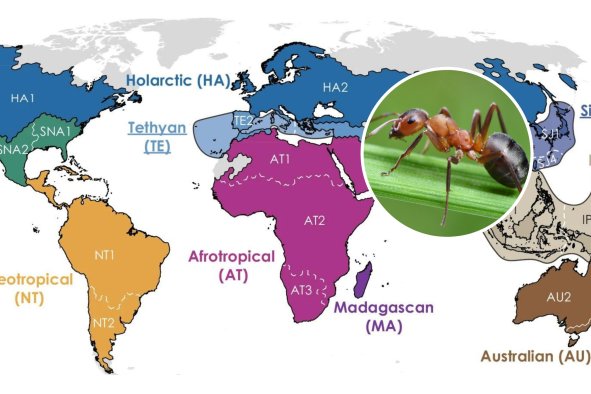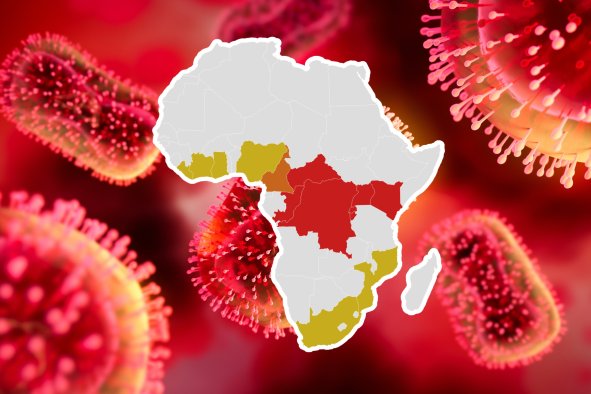A disease called human parvovirus B19 may be increasingly spreading throughout the U.S., the Centers for Disease Control and Prevention (CDC) has warned.
Symptoms of the virus may include flu-like symptoms, a facial rash, and joint pain, among others.
But in people with weakened immune systems or sickle cell disease, the virus can lead to more severe symptoms, such as a significant drop in red blood cell production (anemia). If a pregnant woman becomes infected, there is a risk of the virus causing severe anemia in the fetus, possibly leading to miscarriage.
The virus, which is spread via respiratory droplets similarly to cold or flu, has seen increased cases in Europe. While the U.S. doesn't monitor all cases, data from blood tests have shown that more and more people have DNA from the virus in their systems.
"Recently, CDC has received reports indicating increased activity in the United States," the CDC said in a health advisory on Tuesday. "Data include increased test positivity for parvovirus B19 in clinical specimens and pooled plasma from a large commercial laboratory."
According to the advisory, the proportion of plasma donations with parvovirus B19 DNA present increased from 1.5 percent in December 2023 to 19.9 percent in June 2024.
"CDC has also received anecdotal reports from clinicians who have observed more than the expected number of cases of parvovirus B19 infections among pregnant people, including cases resulting in severe fetal anemia requiring fetal transfusions or pregnancy loss, and increases in aplastic anemia among people with sickle cell disease."
Parvovirus B19 infection usually only causes very mild flu-like symptoms, ranging from fever, headache, cough, joint pain, and rashes. The hallmark symptom is a red rash on the face, known as Fifth Disease, often referred to as a "slapped cheek" appearance.
This can be followed by a lace-like rash on the body and limbs. Rashes are more common in children than adults, but adults may experience joint pain and swelling, particularly in the hands, wrists, knees, and ankles, which may last weeks to months.
"The first phase of illness is characterized by symptoms of fever, myalgia, and malaise and develops approximately 7 days after infection. This phase lasts approximately 5 days," the CDC explained.
"During the second phase of illness (approximately 7–10 days after the first phase), children often present with a characteristic facial rash (erythema infectiosum, or "slapped cheek" appearance), which may be followed by reticulated body rash or joint pain (arthralgia) 1–4 days later."
Parvovirus B19 spreads mainly through respiratory droplets when an infected person coughs or sneezes. People are most contagious before the onset of the rash or other symptoms, which makes preventing transmission challenging.
"Parvovirus B19 is highly transmissible in respiratory droplets, with 50 percent of susceptible people infected after household exposure and 20–50 percent of susceptible students and staff infected during school outbreaks. Historically, people working in schools and in close contact with children (e.g., day care workers and teachers) have had high occupational risk of infection," the CDC explained.
There is no specific antiviral treatment for parvovirus B19. Most cases are mild, and treatment with pain relievers and hydration is usually sufficient.
"Most people require only supportive care during the acute phase of illness and will recover completely. Severe outcomes from parvovirus B19 disease, such as myocarditis, hepatitis, or encephalitis, are rare. No vaccine or specific treatment is recommended for parvovirus B19 infection," the CDC said.
In the advisory, the CDC suggests that doctors should keep an eye out for symptoms that could be parvovirus B19 and test them for the virus if suspicious, especially if they are a high-risk group.
"People at higher risk of severe outcomes or complications who work in settings with higher risk of parvovirus B19 exposure should practice hand hygiene, avoid sharing food or drinks, and consider wearing a respirator or mask while at work," the CDC said.
They advise that pregnant people, those with weakened immune systems, and those with blood disorders like sickle cell or anemia, should seek medical attention if they present with symptoms of the virus.
Do you have a tip on a science story that Newsweek should be covering? Do you have a question about human parvovirus B19? Let us know via science@newsweek.com.
Disclaimer: The copyright of this article belongs to the original author. Reposting this article is solely for the purpose of information dissemination and does not constitute any investment advice. If there is any infringement, please contact us immediately. We will make corrections or deletions as necessary. Thank you.



